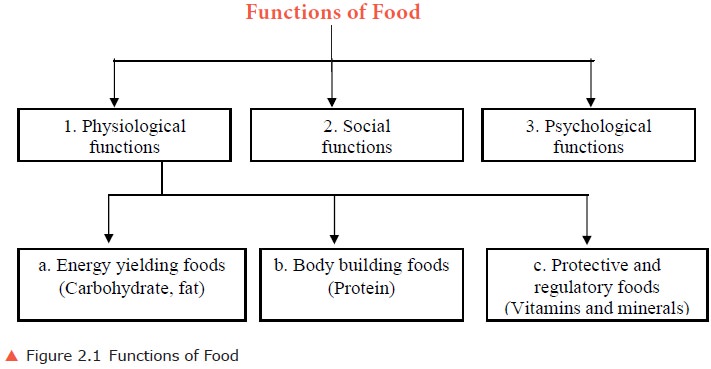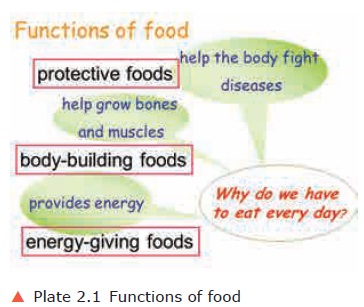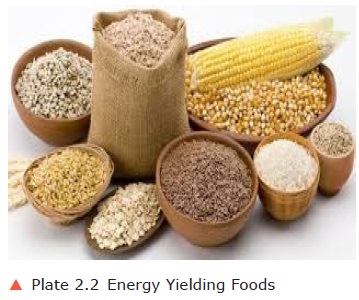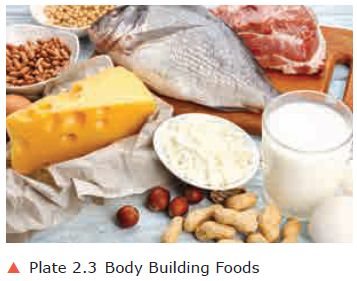Chapter: 11th Food Service Management : Chapter 2 : Basics of Food
Functions of Food
Functions
of Food
Food can be classified according
to the function it performs.

1. Physiological Functions of Food
·
Satisfies
hunger and increases satiety value.
·
Helps in
maintaining normal secretion of enzymes and hormones.
·
Supplies
nutrients that needed for physical growth and development, maintenance of
normal body func-tions, physical activity and health.

a. Energy Yielding Foods: They provide energy to perform voluntary and invol-untary processes in the body. The energy needed is supplied by oxidation of foods consumed.

Cereals, millets, roots and tubers, fruits like banana, dried fruits,
sugar and jag-gery, oil, butter and ghee are energy yield-ing foods.
b. Body-Building
Foods: Foods rich in protein are called body building foods.
Milk, egg, meat, fish contain pro-tein of high biological value. These
foods have all the essential amino acids in cor-rect proportion for the
synthesis of body tissues.
Foods like pulses, oilseeds and
nuts contain protein but may not contain all the essential amino acids required
for the human body.

c. Protective and Regulatory Foods: Foods rich in vitamins and minerals
have regulatory functions in the body e.g., maintaining the heart beat, water
balance, temperature. Protective foods prevent diseases as they are rich in
antioxidants.

Fruits, vegetables, green leafy
veg-etables, milk, egg, fish and liver serve as protective and regulatory
foods.
2. Social
Functions of Food
Food is a
symbol of hospitality throughout the world.
·
It is a
part of community, social, cul-tural and religious life.
·
It
creates a relaxed atmosphere when people are together and it is an instrument
for developing social rapport.
·
Food is a
vehicle for expressing love, friendship and social acceptance in the events
like festivals, marriage and birthday party.
3. Psychological Functions of food
• Gives mental happiness
• Provides sense of security
• Relieves from stress and gives pleasure.
Related Topics